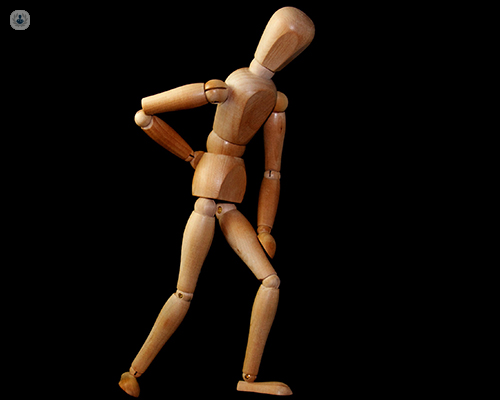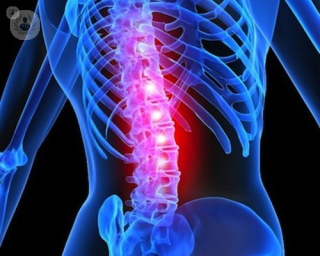Spinal Cord Injury
Mr Stewart Tucker - Orthopaedic surgery
Created on: 01-16-2013
Updated on: 08-28-2023
Edited by: Conor Lynch
What is spinal cord injury?
A spinal cord injury is damage to any part of the nerves that make up the spinal cord or spinal canal. These nerves are essential for coordinating movement in your body and sending brain signals to your muscles when you want to move.
A spinal cord injury is a serious a condition which can result in paralysis. The spine does not have to complete break for damage to the nerves to occur. The nerves in the spinal cord can also be damaged through impact or compression. The location of the damage – whether in the cervical (upper), thoracic (middle), or lumbar (lower) spine – will determine what the symptoms are like. There are approximately 40,000 people in the UK living with a spinal cord injury.

What are the symptoms of spinal cord injury?
If you have an incomplete spinal cord injury, this means that you are still able to move the muscles below the area of the injury. Nonetheless, you might experience symptoms such as:
- Intense pain or pressure in the head, back or neck
- Loss of sensation or tingling in the hands, feet or fingers or both
- Incontinence or urinary or intestinal retention
- Difficulty maintaining balance or walking
- A feeling of weakness in your limbs
“Complete” spinal cord injury can result in:
- Loss of control of the legs (if the injury is in the lower back) and the arms (if the injury is in the upper back)
- Difficulty breathing (if injury is in the upper back)
What are the causes of spinal cord injury?
The two main causes of spinal cord injury are:
- Trauma: due to a car accident, shot, fall, intervertebral disc rupture, etc.
- Diseases: including neurofibromatosis, spina bifida, hypertrophic osteitis of the spine, Friedreich's ataxia, or cancer
What is the treatment for spinal cord injury?
If you have suffered trauma to the spine, you may need emergency surgery on the surrounding bones and muscles and to prevent further damage to the spine. Unfortunately, damage that has occurred cannot be treated.
After a spinal cord injury, you may experience a permanent loss of function, but symptoms may improve to an extent over a two-year period from the initial time of injury. During this time, you are likely to receive a wide range of support, including:











